Best North Korean drama movies
Get ready to binge. We've found a collection of must-watch drama films from North Korea, now streaming on Netflix, HBO, Hulu, Prime Video, and other top services!

Pulgasari (1985)
Pulgasari (1985)
In feudal Korea, a group of starving villagers grow weary of the orders handed down to them by their controlling king and set out to use a deadly monster under their control to push his armies back.
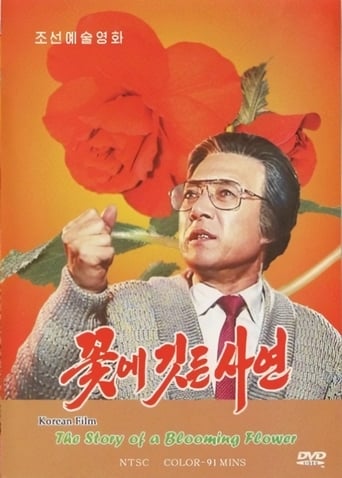
The Story of a Blooming Flower (1992)
The Story of a Blooming Flower (1992)
A Japanese florist creates his masterpiece: the red begonia hybrids will represent the Juche ideology and stand as a symbol of love, justice and peace. In honor of the beloved leader, he gives her the name Kimjongilia.
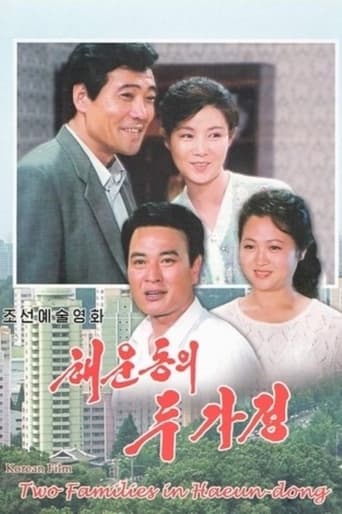
Two Families In Haeun-Dong (1996)
Two Families In Haeun-Dong (1996)
A famous singer and her engineer-scientist husband move into a Korean apartment. Soon, the singer becomes jealous of the intimacy in their neighbours' marriage.
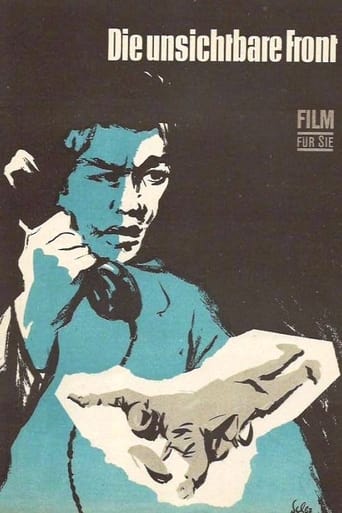
The Invisible Front (1965)
The Invisible Front (1965)
A resident of foreign intelligence, nicknamed 'badger', receives a new task through a sent messenger. Badger's subordinates Sen-ryur Pak, a doctor, and his wife Chon-ok Lee take action. They are participants in a new sabotage operation.
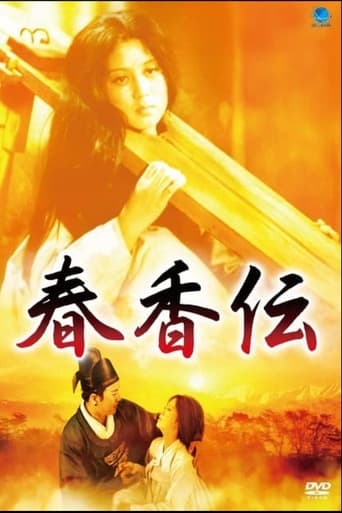
The Tale of Chun Hyang (1980)
The Tale of Chun Hyang (1980)
A tender hearted young noble man, Mong Ryong, falls in love with the famous Chun Hyang, the most beautiful girl of a Korean village, who is also a pure hearted artist but unfortunately from a humble family. This forbidden love yields a secret marriage which is doomed when Mong Ryong departs for Seoul to pass state exams and his absence lasts three years, during which no news is heard of him. Meanwhile, the arrival of an infamous new sheriff puts Chun Hyang in great peril when she refuses to break her marriage and obey the desires of the sheriff.
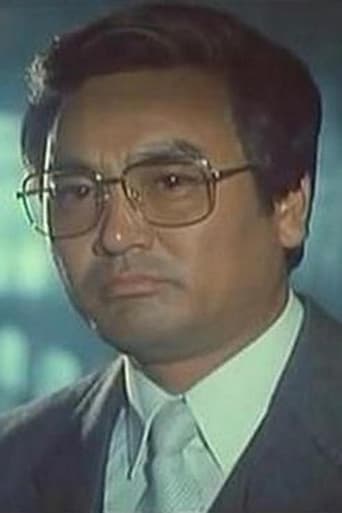
Nation and Destiny 11-13: Hong Yong Ja (1997)
Nation and Destiny 11-13: Hong Yong Ja (1997)
A film about a South Korean actress who has been involved in many political activities under President Park Chung-hee's rule. Ch'a Hong-gi persuades Kim Hyong-uk, the former KCIA director to expose the corruption of President Park Chung-hee in a book. After Kim's death, Hong Yong-ja suspects the South Korean government of being involved. She eventually becomes a vice president of International Taekwondo Federation by the help of Ch'a Hong-gi.
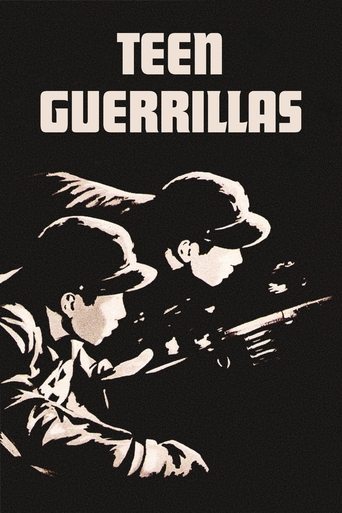
Teen Guerrillas (1951)
Teen Guerrillas (1951)
A group of boys decide to form a guerrilla unit in order to sabotage and spy on the American enemy after one of the communist-controlled cities falls to them.
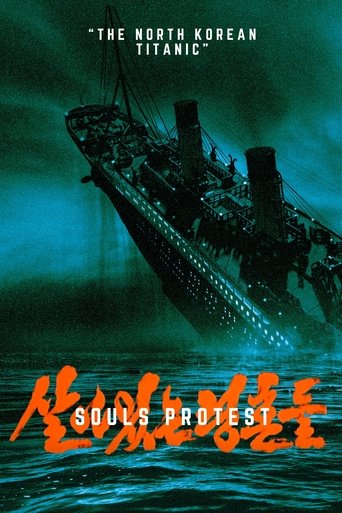
Souls Protest (2000)
Souls Protest (2000)
Billed as a North Korean "Titanic". On August 15, 1945, Japanese Imperialists were defeated and there echoed in Japan, too, shouts of victory of thousands of Korean people who had been drafted to Japan. They formed a repatriation autonomy to return to their dear homeland. The Japs plot to blow up their ship on the way which is overloaded with thousands of Koreans who requested repatriation; whose number in fact is twice as many as the ship's fixed capacity. Cha Myong Jin and other Koreans who are ignorant of this fact set out with great joy and hope, talking and laughing. Cha Myong Jin meets his fiance on the ship and whispers their future life. But they dream breaks out. The Japs turn the ship to the Maizuru Port under the pretext of refilling the drinking water and drive the Koreans below deck while preparing to blow up the ship.
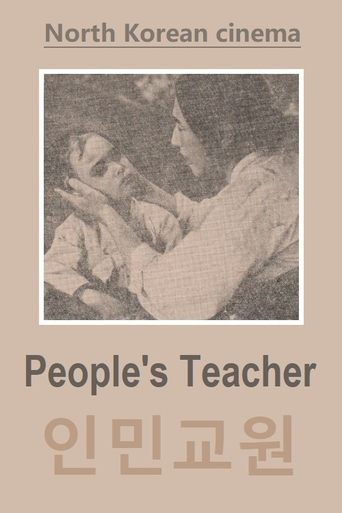
People's Teacher (1964)
People's Teacher (1964)
Schoolboy Ding Sek did not study well, was rude, was an undisciplined child. The film tells about how the teacher Ir Bok, a sensitive and attentive person, managed to find the right way to the boy, helped him and ensured that he became one of the best students.
Wish (2011)
Wish (2011)
The story of a husband and construction worker whose dream is to have his picture taken with the leader of his country.
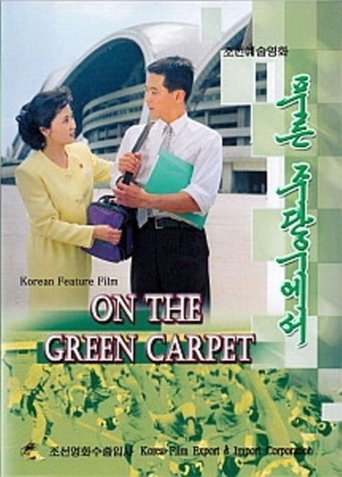
On the Green Carpet (2001)
On the Green Carpet (2001)
Pyongyang, DPRK: Two ex-child gymnasts find themselves working together as directors in charge of the production of "mass games" (aka mass gymnastics, a North Korean specialty). Their joint area of responsibility is the youngest children's performance. However the two directors have different personalities and priorities. Their co-operation is less than friction-free as the pressure leading up to the performance increases. The two find that they work no better together as adults than they did as children. However there is still a bit of a spark between them. Will they manage to finish the production in time for the grand opening in front of the country's Leader? Are the children up for the challenge? Will any romance come out of all this....

An Emissary of No Return (1984)
An Emissary of No Return (1984)
An Emissary of No Return retells the story of a real historical event in 1907 known as the Hague Secret Emissary Affair. Korea had been colonized by Japan. In order to protest to the international community, the Korean emperor king Gojong sent three secret emissaries to the talks of the Hague Convention of 1907, to get the great powers to overturn the Japan–Korea Treaty of 1905.
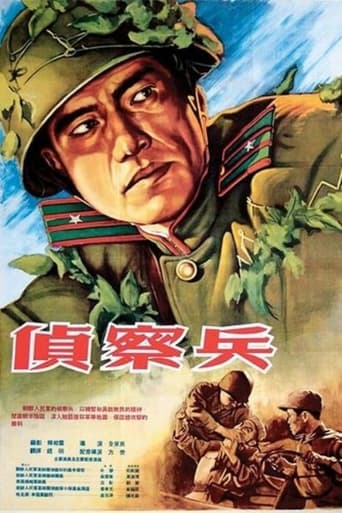
Scouts (1953)
Scouts (1953)
The film tells the story of a small group of the Korean People's Army, led by Hakcheol Lee, deputy chief of the reconnaissance division, which went behind enemy lines.

Myself in the Distant Future (1997)
Myself in the Distant Future (1997)
A romantic drama from 1997, that revolves around the coupling of a big city businessman and a lowly plasterer based in the countryside, who decides to stay in her home despite the apparent benefits of leaving
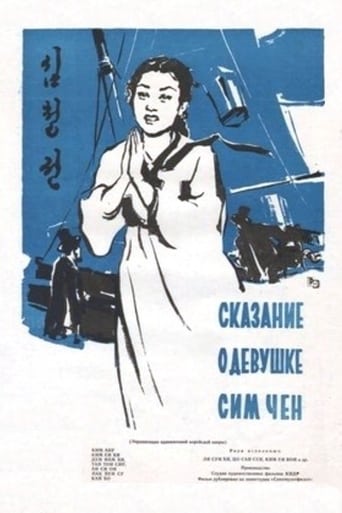
The Story of Sim Cheong (1957)
The Story of Sim Cheong (1957)
Film opera. The legend of the young Cheon Sim who throws herself into the Indangsu sea sacrificing herself so that her blind father can restore his sight. However, she was resurrected, became an empress, and healed her father's blindness.
The Kites Flying in the Sky (2008)
The Kites Flying in the Sky (2008)
The Kites Flying in the Sky is a 2008 North Korean film. Directed by Phyo Kwang and Kim Hyon-chol, the film is based on the true story of a former marathon champion who devotes her life to caring for orphans. It officially premiered on 16 February 2008, and was the first film to be shown on television prior to a general release in June
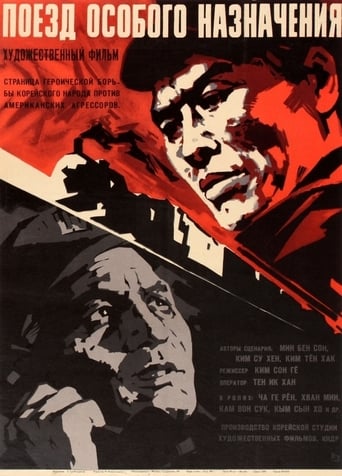
On The Railway (1960)
On The Railway (1960)
Having been arrested by the American forces, a Korean engineer tries to save a North-Korean engine from the possession of the enemy by pretending he is working for them.
The Favourite Young Man (1989)
The Favourite Young Man (1989)
A young plumber reunite with his girlfriend from the years in the army. His sister that he is a businessman. To make him more interesting and desirable. For a plumber is nothing to be, right?
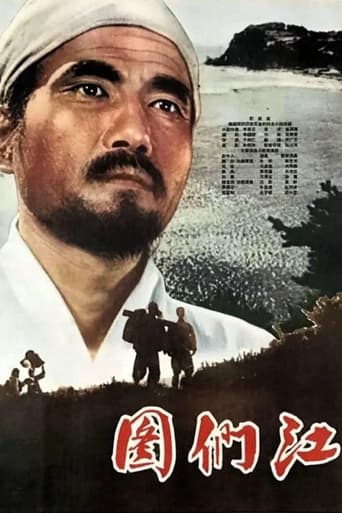
Tumangan River (1961)
Tumangan River (1961)
A screen adaptation of the first part of the eponymous trilogy by Lee Gi Young about the national liberation struggle of the Korean people against the Japanese invaders in the late 19th - early 20th centuries.
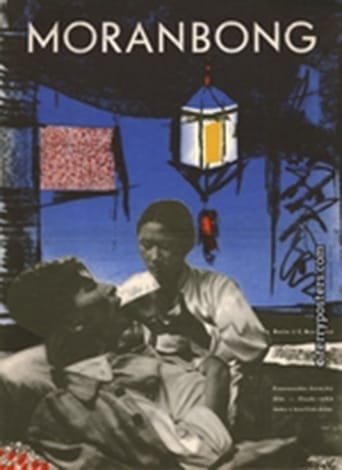
Moranbong (1960)
Moranbong (1960)
At the beginning of the Korean war, the love story, in a remote village, between a young worker and the daughter of a traditional musician.
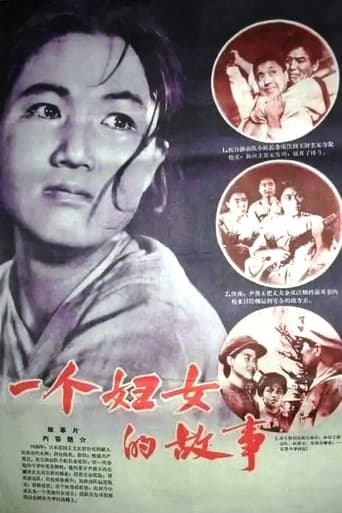
A woman's story (1960)
A woman's story (1960)
About the heroic struggle of the Chinese people against the Japanese invaders in the 1930s. In the center of the film is the image of a young Korean woman, Kyoung-ok Yoo, who selflessly fought in the ranks of the Chinese patriots.
Our Fragrance (2003)
Our Fragrance (2003)
Although an initial match-making attempt between Pyongho and Saebyol through their grandparents is unsuccessful, the two are brought together by fate to participate in the Pyongyang spring fashion show. Modelling both the fashion and the virtues of a wedding couple, their families convene to judge the potential unity. However, tradition versus the foreign influence seeping into society becomes the theme as misunderstandings come to create drama between the two families and the young couple
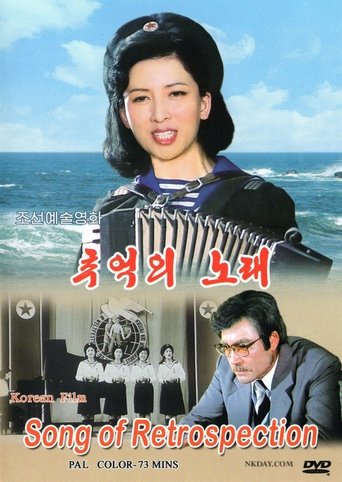
Song of Retrospection (1986)
Song of Retrospection (1986)
Mr. Komak, a musician from one foreign power, and Ra Sol Ju, Navy communicator of DPRK, who also does have a sense of music, met twice. First, on the Korean War, where she captured him, and then at the Festival of Youth and Students in Berlin. Many years later, Komak is coming to the festival in Pyongyang, with hope to find her.
Lighthouse (1983)
Lighthouse (1983)
The hero of this film toiled was a lighthouse keeper before Korea's liberation in World War II. He suffered many indignities and mistreatment by the Japanese, who were then occupying Korea. After the liberation, he leads a better life, and despite his advanced age, he keeps the lighthouse in full working order, in devotion to his country and doesn't rely on recognition or praise. Lighthouse is a quiet revolution drama, which makes it clear that a meritorious fate can also stand behind an unassuming person.
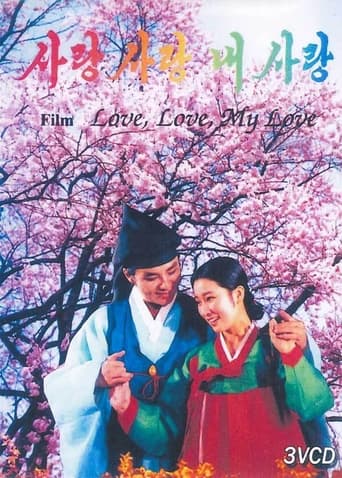
Love, Love, My Love (1985)
Love, Love, My Love (1985)
The plot is based on the Korean folk tale, The Tale of Chunhyang. Chunhyang falls in love with the upper-class Ri Mong-ryong, but they must marry in secret. Mong-ryong is sent away to become a government official. While he is away, Chunhyang is imprisoned by a corrupt governor. Mong-ryong returns just in time to save her from execution and the two can publicly proclaim their love.
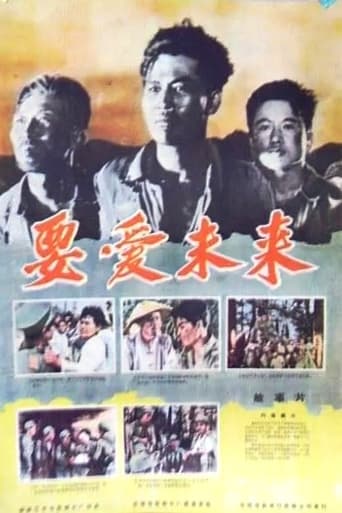
Love the Future (1959)
Love the Future (1959)
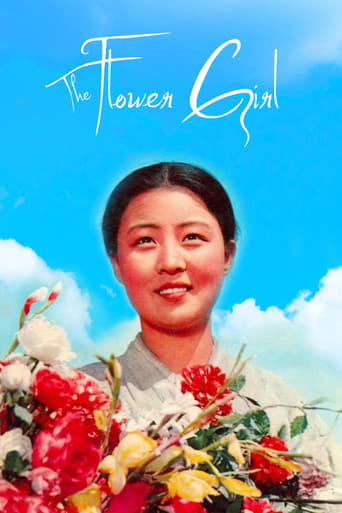
The Flower Girl (1972)
The Flower Girl (1972)
The country is occupied by the Japanese imperialists. Koppun is selling flowers at the market to get some money to buy medicine for her sick mother. Her brother is imprisoned, her father dead and her sister blind.
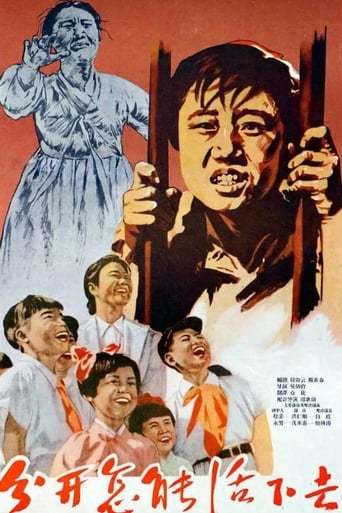
How can we live apart? (1957)
How can we live apart? (1957)
Yong Nam was separated from his mother by the war on the Korean Peninsula (1950-1953): the boy remained in South Korea, while his mother left for the North. But how can they live apart?
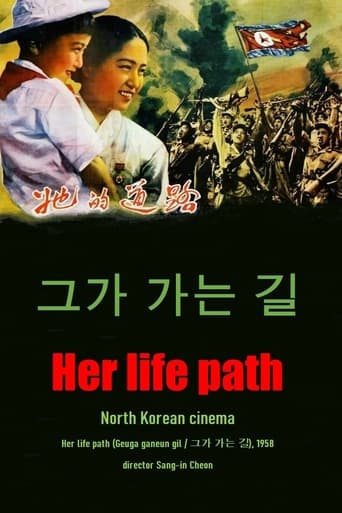
Her Life Path (1958)
Her Life Path (1958)
Using the fate of an ordinary woman as an example, the film shows how life has changed in liberated Korea.
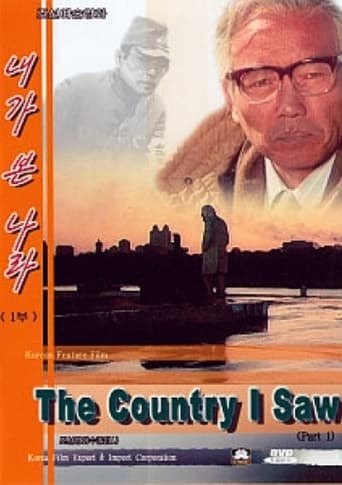
The Country I Saw (1987)
The Country I Saw (1987)
While serving as a journalist in World War 2 for the Imperial Army of Japan, "Takahashi Minoru" (Pak Ki Ju) sees first-hand the impact on Koreans who have had their national identity forcibly taken from them by the Japanese occupation of their country. It's at this time that he adopts a mantra of viewing an incident before writing a newspaper editorial on it. Several years later he once again visits Korea as a war correspondent during the Korean War and takes home with him several more memories that have a great effect upon him as well. Years later he becomes a respected writer and while giving a speech on the Juche system has his perspective challenged by a young man in the auditorium. Having never seen North Korea he realizes that in order to meet his own high standard of journalism he must travel there and see for himself whether his opinion is valid or not.